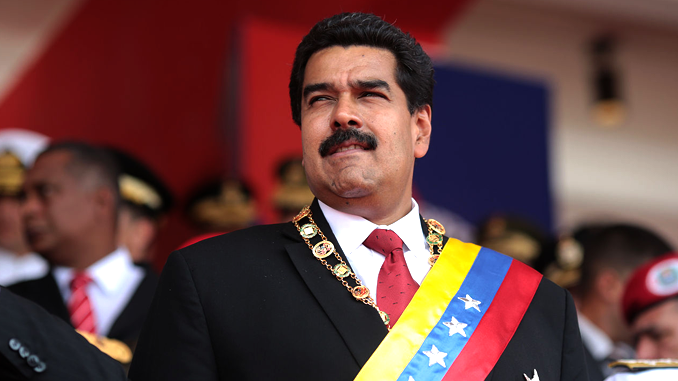
Difficulties in Venezuela are coming to a head. It now has two internationally recognized Presidents, with Nicolas Maduro retaining the support of China, Turkey, Iran, and especially Russia as well as a handful of less influential countries and Juan Guaido being recognized as the current leader by the EU, Australia, Brazil and most of South America, Canada and the United States.
Maduro has lost the support of the people and he is rejected by his bordering neighbors. He retains control over one key organizaion: the Venezuelan military. In an effort to prevent his rule from being further undermined, the military is now blocking humanitarian aid from getting into the country. As the aid is being sent by countries who support Guaido, Maduro reasonably fears it will further degrade what influence he retains over the populace.
The U.S. Senate decided to take up a resolution against Maduro. It had very strong bipartisan support, only to falter over one factor: the use of force. Some Senators were concerned about approving the use of force if necessary.
A variety of reasons were provided, and there are undoubtedly some concerns, such as fear of Russian or Chinese retaliation, which were not publicly stated. All of them had a central theme, however: distrust of the President.
The threat of force against an enemy is an important diplomatic tool which has been used by nearly every President. This is not to say that wars are spuriously started or police actions authorized without thought of consequences; rather, the threat of violence is balanced against the promise of positive peaceful action in an effort to coerce opposition leaders into accepting a position that America accepts.
The problem with Trump is that he’s not trusted to behave rationally. This is waved off by his supporters as being tactical genius, steps ahead of all of his opponents. The Senate, however, has dealt directly with Trump’s decisions on a daily basis. The fact that many members balk over giving him even the slightest support over using force, when they are demonstrably eager to support his position politically, should be a matter of grave concern.
The threat of going into Venezuela should be encouraged. It will be a strong cautionary wind against Maduro deciding to engage in mass slaughter of his opposition, as has happened in similar situations and which often leads to civil war. A civil war in Venezuela will be result in devastating humanitarian losses, hinder international oil production and place a violent conflict less than fifty miles from the tip of Florida.
Actually going into Venezuela, however, should be a decision made only after deep consideration. There are many ways in which actually sending troops into Venezuela could trigger negative consequences, ranging from hampering the trade chalks with China to a strengthening of Maduro’s tenuous control over the military to the further degradation of confidence which would stem from yet another unnecessary American retreat.
This Congress is indicating it cannot trust Trump to behave in a manner that promotes the interests of America, her allies, and freedom-loving people throughout the world. For anyone who disbelieves the many reports of Trump operating off of his emotions of the moment because the reporters are hostile media, this should serve as a material example that sometimes even an opposition reporter is telling the truth.
